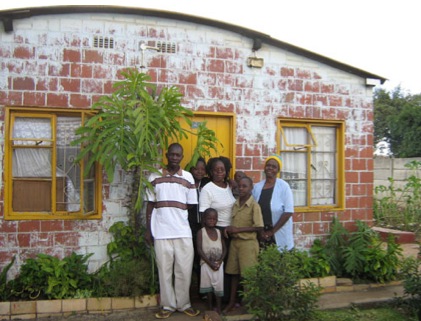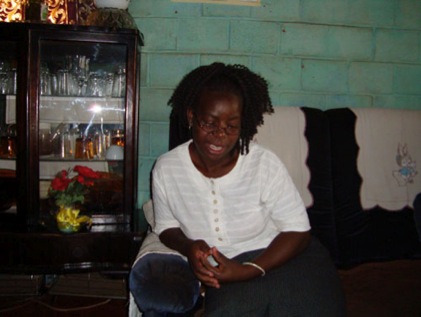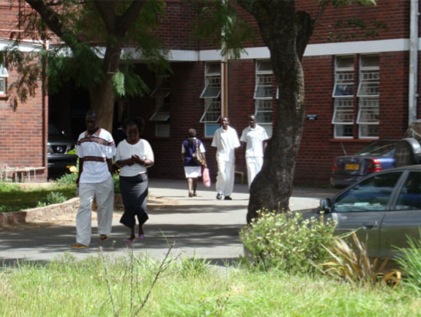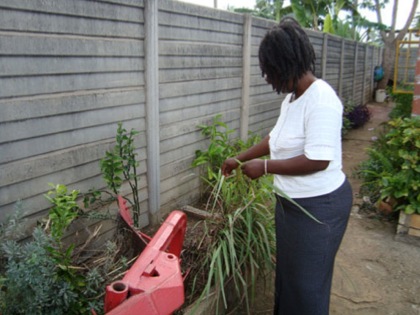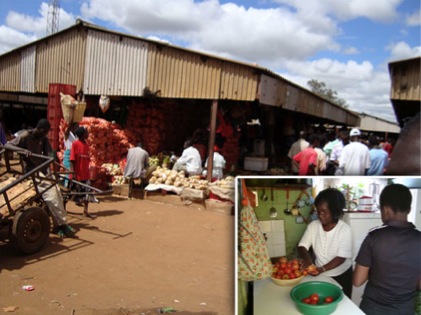This photostory was produced by Tendayi and Cynthia Kureya; PANOS; SAFAIDS Zimbabwe and photography by Tendayi Kureya
My name is Rudo Kembo, I’m a 32-year old widow and currently look after 6 children aged between 2 and 15 years. Four of the children are my late sister’s and ill brother’s. I stay in Rugare – a high density suburb in Harare, Zimbabwe.
Emerging issue: Self Stigma
I have been ‘living positively’ with HIV for the past 4 years. I discovered that I was HIV positive after I lost a child and was quite ill for a year – I suffered severe stress and lost weight. At that time I felt that I was too young to be HIV positive. A friend referred me to The Centre for help. The Centre is a Zimbabwean NGO (non-governmental organisation) that is run by, and gives support to, people living with HIV. I was too ashamed of my status and so only disclosed it to my mother and late sister.
Whilst my mother was very supportive and accompanied me to counselling sessions, I was reluctant to attend and usually sat outside of the counselling room. I stigmatised myself and even enrolled for ART (anti-retroviral therapy) at Parirenyatwa Central Hospital, which is two buses away as opposed to attending the nearest hospital that is within walking distance. I was too ashamed to let people at a nearby hospital know my status. My mother used to work there and a number of the staff knew me.
How it affected me, my family and my community
I have also witnessed the impact of HIV related stigma within the community. Some time ago I lost a colleague who was on TB treatment. I was also taking TB treatment at the time. My colleague and his family all denied the existence of HIV and chose to call it “witchcraft”. He unfortunately passed away without going for a HIV test. The experience was so traumatising for me that I had to undergo counselling.
Identifying Responses
The Centre has been a source of strength for me in responding to the challenge of HIV related stigma. After months of counselling and moral support from my mother and the support group, I got better and gained my strength back. This was complemented by the positive effects of ART. The positive impacts of the help I had from the organisation and the support group made me realise that there was so much hope for people infected with HIV.
I became a care-giver for The Centre at the first opportunity I got. I had to give back the inspiration that I had received from The Centre. I felt that I had to impart the inspiration to people in my community. I joined Tariro Support Group from The Centre.
As a care-giver I began by talking to infected and affected people at Kambuzuma clinic. This boosted my moral and self esteem. Together with the Ward AIDS Committee in Rugare* I managed to identify people affected by the pandemic in my community. Subsequently, we divided the community into 4 working groups.
Through my role in the community, many people have either disclosed their status or joined support groups. One of them is Douglas (photo above) who was encouraged by me to live positively and is now on ART. In the insert I accompany Douglas to Harare Hospital for collection of his medication. Currently there are an estimated 120 people within the community who are on ART, and most of them have received some form of emotional support from me.
I also offer advice on nutrition and provide education on how to use herbal remedies. I also distribute condoms from my home. The response has been quite positive as some people are reluctant to buy condoms in open market areas. I feel this also has a positive impact for PLHIV (People Living with HIV) in my community as they are able to adopt safe sex practices.
Through the knowledge I gained from The Centre, the whole family now survives on a natural food diet. My family has been very supportive and ensure that I eat the right food. My family also supports me to adhere to ART.
* These are set up by the National Aids Council as a platform for stakeholders to share community level responses to HIV and AIDS.


